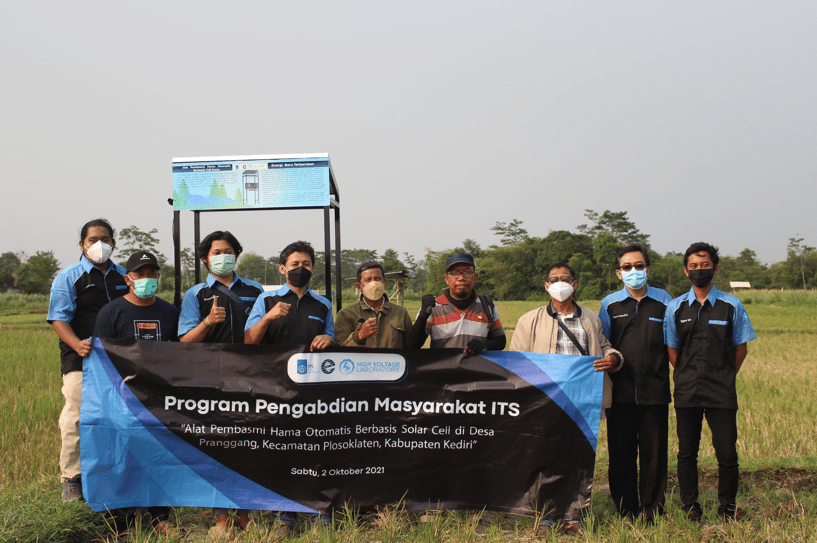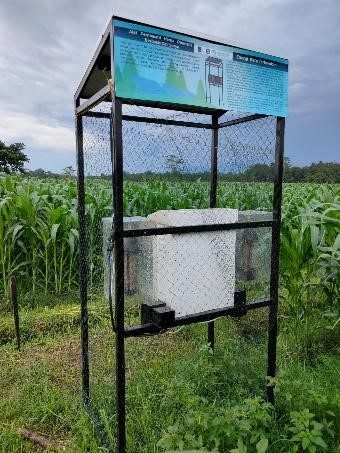2021

Indonesia is a tropical country which has two seasons, namely the rainy season and the dry season. Indonesia has a lot of rainfall and gets sunshine all year round. These climatic conditions have resulted in Indonesia having an abundance of rich biodiversity. In addition, the climatic conditions in Indonesia make the soil very fertile which makes Indonesia very suitable as an agricultural country. The Central Statistics Agency (BPS) stated that the number of working people as of August 2020 was 128.45 million people. Of this figure, most work in the agricultural sector with 38.23 million workers or around 29.76%.
Good and proper pest control is needed to prevent crop failure due to pest attacks. A common and easy way to deal with pests is to use pesticides. The results of the use of pesticides can be said to be effective and fast. However, the use of chemical pesticides has a negative impact on the environment and human health.

Therefore, through a community service scheme carried out by the High Voltage Laboratory of the Department of Electrical Engineering, ITS helped control insect and rat pests by making Solar Cell-Based Automatic Pest Control Devices for farmers in Pranggang Village, Kediri, East Java. The implementation of this community service is expected to help farmers in Pranggang Village to control pests so that crop yields can increase and there is no need to worry about the harmful effects of using pesticides on plants.
This service activity will be carried out by case studies, making tool designs, assembling tools, conducting trials to determine performance, installing tools, socializing tool use instructions, monitoring and continuous evaluation of the impact of using tools on crop yields. The output of ABDIMAS activities for 7 months, namely Solar Cell-Based Automatic Pest Control Devices will be used as a medium for the residents of Pranggang Village to control and repel rats and insects that will help to increase crop production from various food needs, namely Corn, Rice, Chili, and others.
